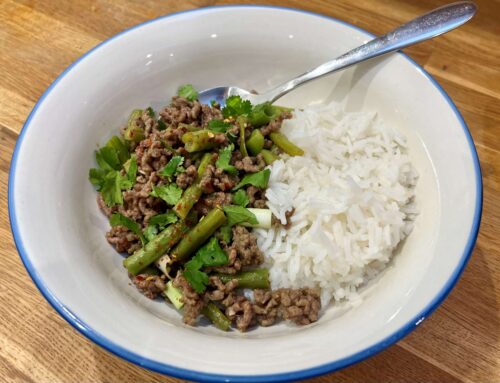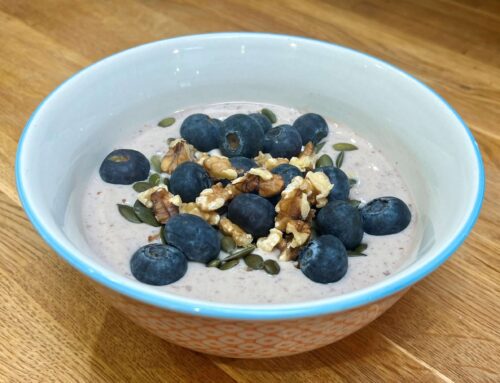The function of fats in the body
Dietary fats are an essential source of fatty acids which the body can’t produce itself and are crucial for the healthy functioning of the body. Fatty acids make up the membranes of cells throughout the body and, in particular, in the brain which is 60% fat. Another function of fats is to help the body absorb fat-soluble vitamins (A, D and E) and antioxidants. Omega 3 fatty acid helps prevent heart disease and stroke, assists the creation of hormones, and plays a role in metabolic and immune system functioning.
Saturated fat vs. monounsaturated & polyunsaturated fats
Fat often receives bad press, but it is eating too much of saturated (pastry, butter, cakes, fried foods, etc.) and not enough of monounsaturated & polyunsaturated fats (avocados, oily fish, nuts & seeds, etc.) which is bad. In fact, eating healthy fats can help keep cholesterol levels under control by helping to remove excess cholesterol to the liver where it can be disposed of.
How much fat per day?
Fat is an important source of energy, providing over double the amount of energy per gram than protein and carbs (9 calories per 1g, vs 4 calories). This does mean that it is easy to over-consume and, since any dietary fat that is not used by your body’s cells or used for energy will be converted to body fat, it’s important to be mindful of how much fat you are eating. In general, a diet containing 20-30% fat is considered balanced.
Why not try one of our healthy recipes that contain the perfect balance of fats, carbs and proteins; like this Roast Chicken, rice & vegetable soup recipe!








Leave A Comment